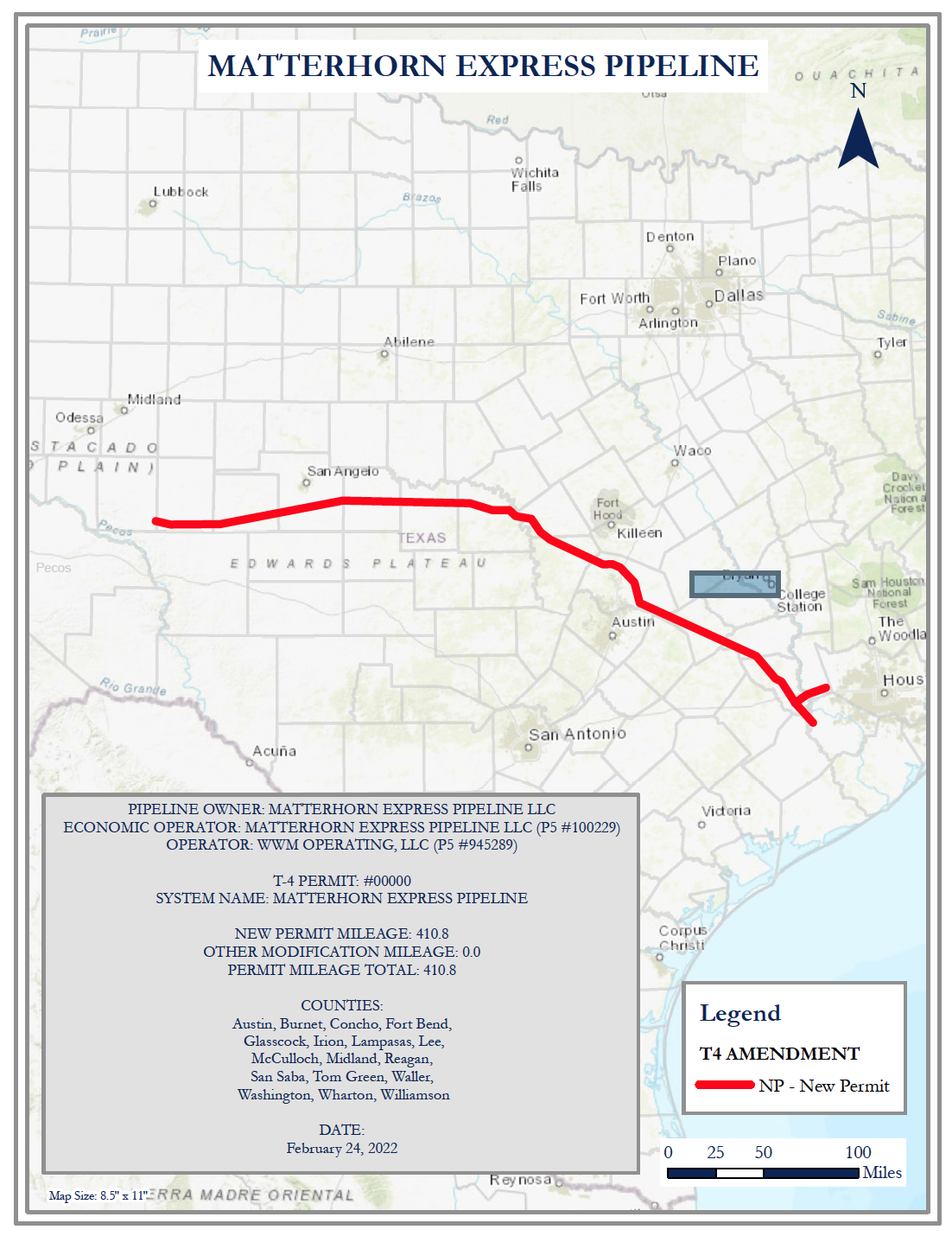Matterhorn Express Pipeline Eminent Domain
The increased oil and gas production in West Texas is causing increase pipeline construction throughout the state of Texas. Unfortunately for Texas landowners, this means that more and more pipeline companies are filing claims to take their private land for these projects through a process called eminent domain.
One of these such projects is the Matterhorn Express pipeline, a 410-mile pipeline run by Whitewater Midstream, that will connect Upton County (south of Midland) to Fort Bend and Waller Counties (west of Houston). The project will impact landowners in as many as 17 Texas counties. If you are a landowner who has been contacted by Whitewater Midstream or any other right-of-way company about the Matterhorn Express pipeline project, you need to speak with an eminent domain lawyer as soon as possible. Do not agree to or sign anything without speaking to an attorney. This is the only way to fully protect your rights as a landowner.
At Marrs Ellis & Hodge LLP, our attorneys have significant experience representing landowners facing eminent domain issues across the State of Texas. We understand the law, compensation, damages, and what is necessary to secure the best possible outcome for property owners. Call today and let us explain your legal options.
About the Matterhorn Express Pipeline
At the end of February 2022, WhiteWater Midstream submitted a T-4 permit to the Railroad Commission, requesting the right to take private land for their pipeline project. The Matterhorn Express Pipeline will stretch 410.8 miles and will transport natural gas through the following 17 counties:
- Austin County
- Burnet County
- Concho County
- Fort Bend County
- Glasscock County
- Irion County
- Lapasas County
- Lee County
- McCulloch County
- Midland County
- Reagan County
- San Saba County
- Tom Green County
- Waller County
- Washington County
- Wharton County
- Williamson County
The Eminent Domain Process
When a private for profit oil and gas company decides that it needs to take land for a pipeline project, they file for a T-4 permit with the Railroad Commission of Texas – Texas’ oil and gas regulatory body. Once this happens, there is very little oversight or transparency in the process. Once approved, however, landowners affected will typically receive a letter to request to survey and make an offer to purchase part or all of the property. Such letters will often outline the need to purchase an easement for the pipeline project – in this case, the Matterhorn Express pipeline. The letter may come from WhiteWater Midstream, Matterhorn Express Pipeline, LLC or another company acting on their behalf.
If the owner does not accept the offer, the owner may attempt to negotiate with the pipeline company for additional compensation, or the owner may reject the offer. If an agreement is not reached or the property owner rejects the offer, then the pipeline company may then file a condemnation lawsuit against the owner. In such situations, courts appoint three landowners to serve as Special Commissioners. The Special Commissioners can consider evidence presented by both parties and issue an “award” of the property value based on the information.
If either party disagrees with the “award”, they may object to the decision. This sends the case to the trial court, where the case proceeds just as any civil lawsuit would.
It is in your best interests to speak with an attorney as soon as you receive a notice about the Matterhorn Express Pipeline, but particularly if you are offered an unfair amount for your property. At Marrs Ellis & Hodge, LLP, we have represented landowners in every stage of the process, including in trial against pipeline companies. Please contact us for a free consultation.
Pipeline Trial Representative Case
Peregrine Pipeline Company, L.P. v. Eagle Ford Land Partners, L.P., No. E200700046, In the County Court at Law No. 2, Johnson County, Texas (2014):
Luke Ellis and Justin Hodge represented a landowner in a jury trial over the disputed value of a pipeline easement. The Plaintiff pipeline company had offered $80,000. After a week-long trial, the jury returned a verdict of $1.66 million in the landowner’s favor, the exact amount testified to by the property owner’s appraiser. Peregrine appealed and the jury verdict. The parties reached a settlement while the case was pending on appeal that resulted in $616,943.47 net to the client.